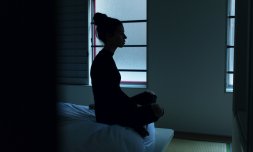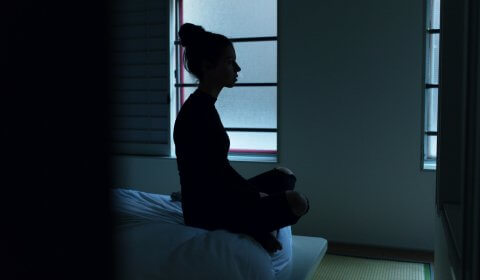The actor is known for dishing up words of wisdom on her Instagram stories. But one pithy piece of advice is resonating with young women the world over.
‘I think you guys might be thinking about yourselves too much.’ It’s a simple answer to the simple question of confidence – or rather a lack thereof. No matter how straightforward this quandary may seem, it remains a bugbear for young people, and specifically for young women. Which is perhaps why this pithy piece of advice has resonated so deeply amongst said demographic.
If you didn’t know, these wise words belong to Jemima Kirke. The Girls actor has established herself as somewhat of a social media sage, providing flippant answers to life’s most existential questions on her Instagram stories – each one profoundly blunt and earth-shifting.
Like many of Kirke’s followers, this specific nugget of wisdom stopped me in my tracks during a morning commute. So brazen were her words that they pulled the rug out from under me. So brazen, in fact, they could easily be taken for a facetious joke (Kirke is known for the countless memes her no-frills online presence has inspired).
But read it, and read it again. ‘You guys might be thinking about yourselves too much.’ It’s the kind of thing my mum would tell me when I was a teenager mid-strop. Akin to ‘we all have to do things we don’t want to do,’ (ugh, remember that one?). Yet Kirke’s message can be read in a soft, comforting way too.
As someone who has been in therapy for a social anxiety disorder for years, most of the best advice boils down to the Jemima Kirke meme. Try to be more curious about the people around you than how you are being perceived by them https://t.co/wRtbmxHVlp pic.twitter.com/92gG8eCmuY
— Good Karma Hoarder (@alltwentyQ2) April 2, 2025
When you strip back the layers of existential dread, anxiety, and self-criticism that tend to frame your twenties, there’s something truly comforting about being told you can simply shift your priorities. Kirke’s message is a bitesize way of saying that the things we water, grow. If we spend all our time fixating on ourselves, then the only viable outcome is that we’ll waste time worrying about ourselves, too.
Writer Chloe Laws had a similar experience reading Kirke’s advice. ‘I wrote it on a post-it note, saved the photo in my folder, and have peddled it out over the years to down-in-the-dumps friends,’ Laws writes. She’s just one of many journalists who’ve rolled out think-pieces on Kirke’s post since it first went viral, proof of the legs on this eleven-word-wonder.



















